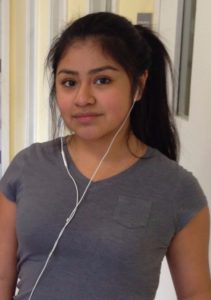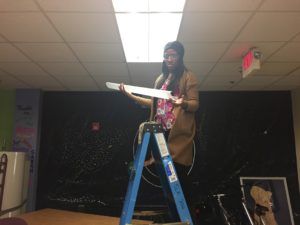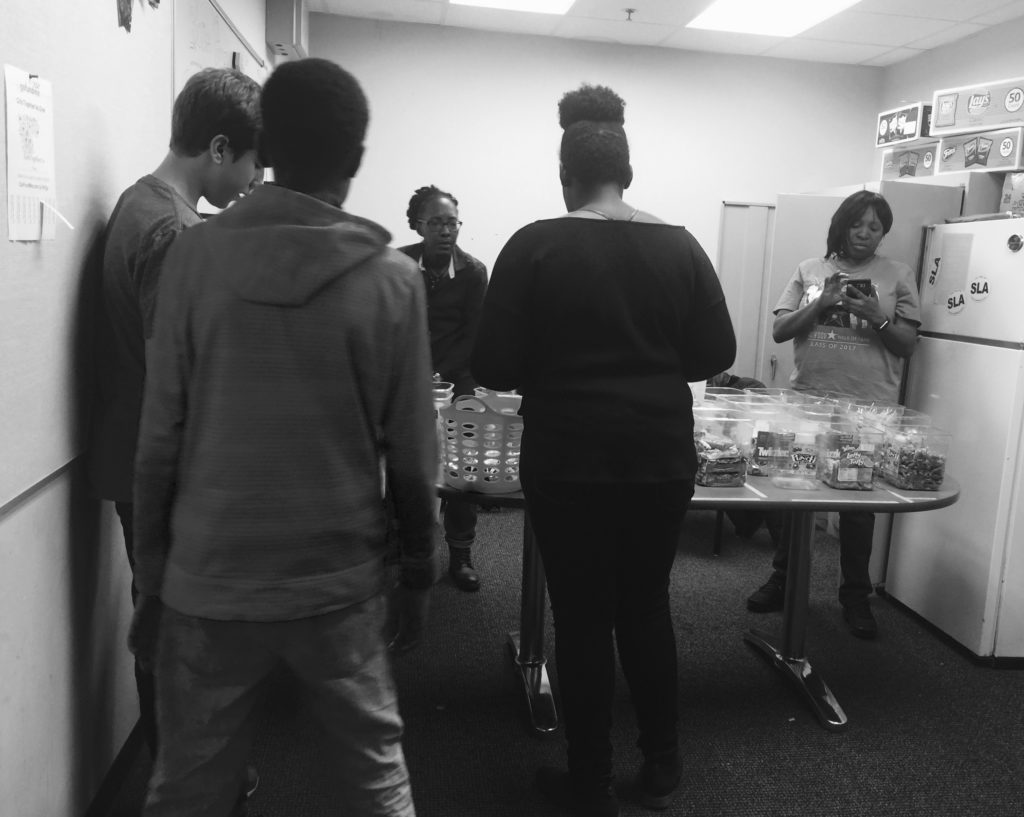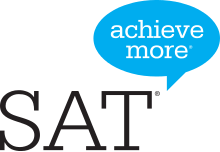Lauren Nicolella
Staff Writer
Starting on the week of January 23rd, Philadelphia teachers got involved and took action both in and out their classrooms in a city-wide Black Lives Matter week. SLA teachers organized the school’s participation in the events. The specific week was planned out to be in response to the presidential inauguration of Donald Trump. The city wide action lead into February, black history month.
Participation and Contribution
Multiple teachers at SLA participated in the matter in different ways. Many of them chose to wear custom designed shirts and pins with the logo “Philly Educators: Black Lives Matter.” The design was made by a graphic design teacher at Martin Luther King High School. 500 shirts were made and all of them sold. Students participated through an advisory curriculum designed by the teachers.
SLA’s English teacher Larissa Pahomov and History teacher Daniel Symonds were the main promoters for this event to take place at our school, informing other teachers at meetings and distributing materials in preparation for the event.
Student Reactions
Sophomore Zoey Tweh, who is a lead organizer of the new Black Student Union at SLA , was pleased to see the campaign take off at school.
“There are certain teachers I don’t have, but it’s reassuring to see them wearing the shirts because that tells me something else that I don’t get to know about them.”
This type of event allows students to feel supported and see the way that their teachers are standing with them, showing how much they care. A great number of the teachers participated during the week. Small actions like wearing a button, impacted students, giving them the knowledge that they have their teacher willing to help, and aware of these social issues.
“I think that understanding social and political movements is very important, students are often taught that history is something that happened a long time ago, and aren’t invited to observe their world in the present day.” Ms. Pahomov stated.
African American History Class
As we know, African American History is a graduation requirement, and Philadelphia is the only city in the country to do this. Sophomore Miguel Rivera admits, “In the African American History class, current African American History is not talked about enough.” There seems to be more talk around the current culture and issues of social justice in other classes and not where it seems to make the most sense.
Some students expressed a lack of connection in African American History because the teacher isn’t African American. Sophomore Afi Koffi, who had a different teacher than the current one, talked about her experience in the class last year: “I think there was a barrier. It’s hard for a white person to teach something like African American History because no matter how hard they try, they have personal biases that will show one way or another. Race is a touchy subject. People are going to get hurt and disagree, but discussions have to happen so that we can bring forth change.”
Afi also explained how teacher turnover last year negatively affected her class experience.
Sophomore Taylor Green had a bit of a different viewpoint, and also a different teacher, “I feel like a white person is just as capable as teaching African American History as much as a teacher who is a person of color, the only thing different about it might be how the students feel within the classroom. I think as long as the teacher makes the environment a safe space and reminds kids to choose their words carefully, it can be the same experience.”
Advisory Awareness
During Black Lives Matter week, on Monday the 23rd, and Thursday the 26th, most advisors showed their students a slideshow with a series of questions and information about Black Lives Matter. Using the slideshow or not was a decision for the teacher to make, leading to some students were unaware of the presentation.
A math teacher, Mr. Estey decided to make his own slideshow containing a different approach with information and questions. Mr. Estey had explained why there was a lack of participation. “I realized this when Zoey started talking about BLM week during debate – she pointed out that the energy in our advisory was really flagging, even though we had lots of strong personalities with strong feelings about the topic. That showed me that we needed to change our approach to help unleash all that personality.” The final result of this was two short readings and an open-ended question that let people talk freely.



